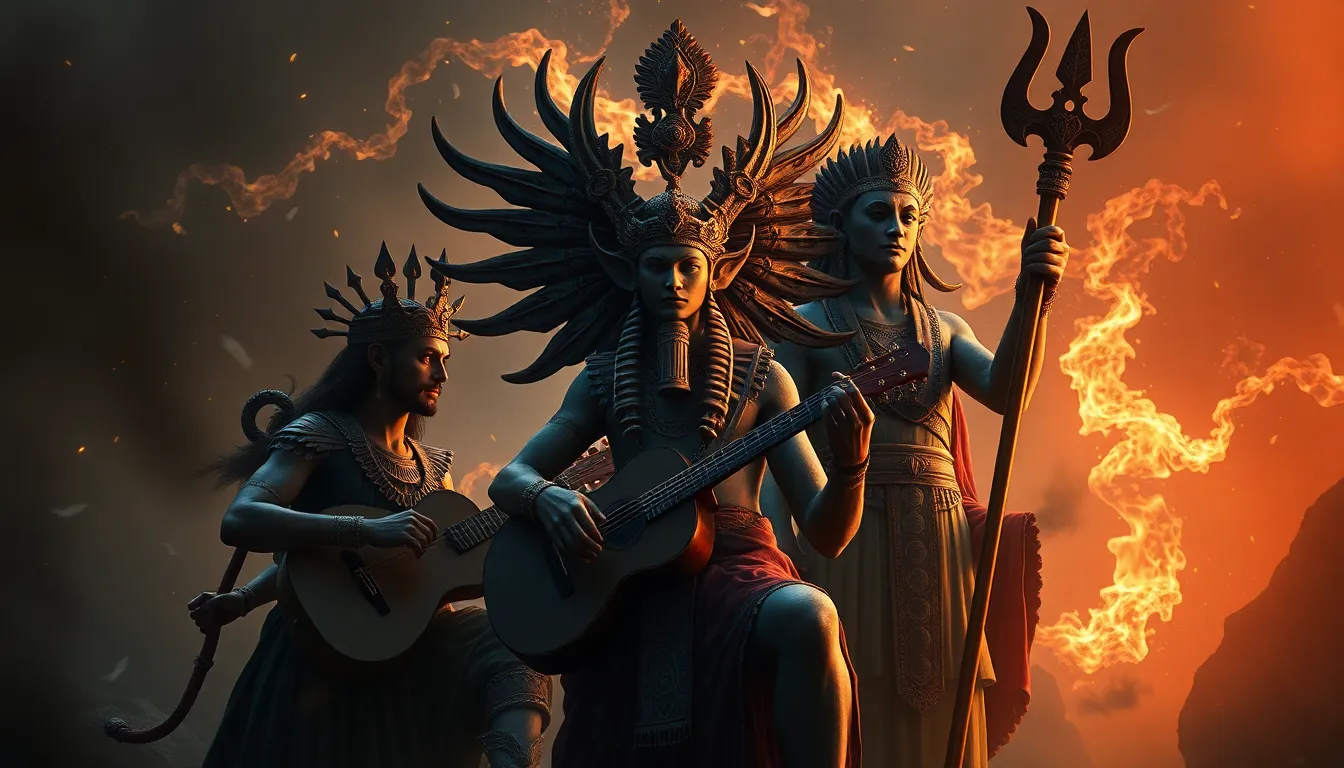The Role of Music in Worshipping Ancient Deities
Introduction
Music has been a cornerstone of human culture since the dawn of civilization, serving as a medium for expression and communication. In ancient cultures, music held a significant place in the practice of worship, facilitating a connection between the human and the divine. Worship, in its various forms, has evolved through history, characterized by rituals, prayers, and offerings to deities. This article delves into the multifaceted role of music in the worship of ancient deities, exploring its significance across different civilizations, types of music, and the instruments that accompanied these spiritual practices.
Historical Context of Worship in Ancient Civilizations
To understand the role of music in ancient worship, it is essential to examine the key civilizations that shaped early religious practices. Major ancient cultures such as Mesopotamia, Egypt, Greece, and Rome integrated worship into the fabric of daily life, establishing a profound connection between the divine and the mundane.
- Mesopotamia: The cradle of civilization, where hymns and chants were dedicated to gods like Enlil and Inanna.
- Egypt: Music accompanied rituals and ceremonies honoring gods such as Osiris and Isis, often performed by priests and priestesses.
- Greece: The worship of deities like Apollo and Dionysus was enriched through music, particularly in festivals and theatrical performances.
- Rome: Music played a role in both public and private worship, with grand ceremonies honoring gods like Jupiter and Mars.
In these societies, religion was intertwined with daily existence, where music served not only as an art form but also as a vital component of spiritual life.
Types of Music Used in Worship
Music in ancient worship can be broadly categorized into vocal and instrumental forms. Each type played a distinct role in enhancing the spiritual experience.
- Vocal Music: This included hymns, chants, and songs that were often performed during rituals. Vocal music served as direct communication with the deities, expressing devotion and reverence.
- Instrumental Music: Instruments accompanied vocal performances or were played solo during rituals. This type of music created an atmosphere conducive to worship and meditation.
Specific genres of worship music, such as hymns dedicated to the gods or chants used in ceremonies, illustrate the diversity of musical expression in ancient worship.
Instruments of the Divine: Musical Instruments in Worship
Ancient worship was often characterized by the use of various musical instruments, each carrying its own cultural significance and symbolism. Common instruments included:
- Lyres: Stringed instruments often associated with the divine, used in hymns dedicated to gods.
- Flutes: Wind instruments that produced ethereal sounds, believed to facilitate communication with the spiritual realm.
- Drums: Percussion instruments that provided rhythm and energy, often used to invoke a sense of communal celebration.
The choice of instruments was not arbitrary; each instrument held symbolic meaning, contributing to the overall spiritual atmosphere of worship.
Theological Perspectives on Music and the Divine
Ancient religions offered various theological perspectives on the role of music in connecting with the divine. Music was often viewed as:
- A form of prayer: Many believed that music served as a direct line of communication to the gods, elevating the souls of worshippers.
- An offering: Musical performances were considered gifts to the divine, an expression of devotion and gratitude.
This understanding underscored the belief that music possessed transformative power, capable of bridging the gap between mortals and deities.
Rituals and Ceremonies Featuring Music
Music was integral to various rituals and ceremonies in ancient worship. Specific examples include:
- Sacrifices: Music accompanied sacrificial offerings, enhancing the solemnity and gravity of the event.
- Festivals: Celebrations honoring deities often featured lively music, dance, and communal participation, fostering a sense of unity among worshippers.
Through these rituals, music not only elevated the spiritual experience but also reinforced community bonds and collective identity.
Case Studies of Music in Worship Across Cultures
Examining specific examples from various cultures reveals the diversity and commonalities in musical practices:
- Ancient Egyptian Hymns: These were often sung to honor gods during temple rituals, emphasizing the connection between music and divine favor.
- Greek Dithyrambs: These choral hymns were performed in honor of Dionysus, demonstrating how music could evoke ecstatic experiences.
Comparative analysis highlights the similarities in the use of music for worship, despite cultural differences, underscoring a universal human inclination to seek the divine through sound.
The Influence of Music on Spiritual States and Community Cohesion
Music has the power to foster community bonds and enhance the spiritual experience. In ancient worship, the collective act of singing and playing instruments created:
- Community Cohesion: Shared musical experiences brought individuals together, reinforcing social and spiritual ties.
- Psychological Effects: Music has a profound impact on emotional states, helping worshippers achieve a sense of peace and connection.
These effects contributed to a heightened sense of belonging and collective spirituality within communities.
Legacy of Ancient Worship Music in Modern Spiritual Practices
The influence of ancient musical traditions persists in contemporary religious practices. Many modern spiritual movements incorporate elements derived from ancient worship music:
- Continuity: Hymns, chants, and instrumental music remain central to worship across various religions.
- Change: While some practices have evolved, the underlying principles of using music to connect with the divine endure.
This legacy reflects the enduring power of music in spiritual contexts and its relevance in fostering connection and community in modern worship.
Conclusion
In summary, music played a crucial role in the worship of ancient deities, serving as a bridge between the human and the divine. Through vocal and instrumental expressions, ancient cultures utilized music to enhance their spiritual practices, fostering community bonds and emotional connections. The theological perspectives on music’s significance further illustrate its integral role in worship. Today, the legacy of this ancient practice continues to resonate, as music remains a vital component of spiritual life, reinforcing the enduring power of sound in the quest for the divine.



